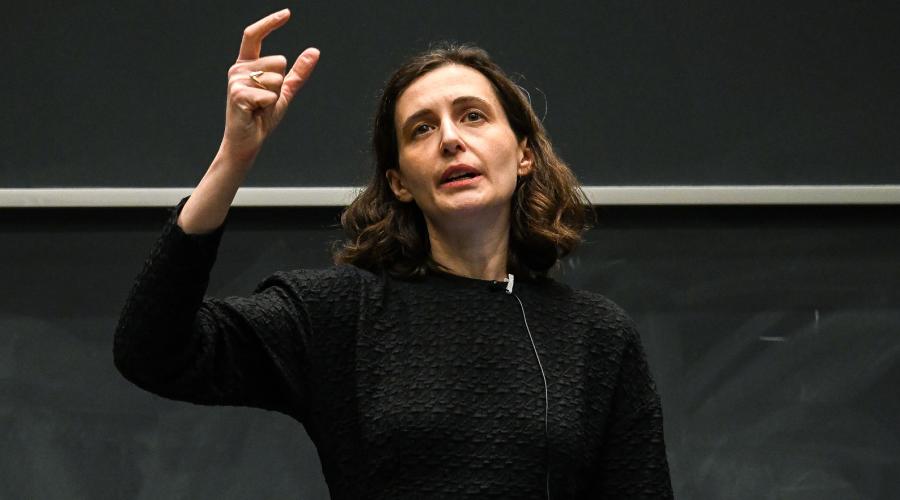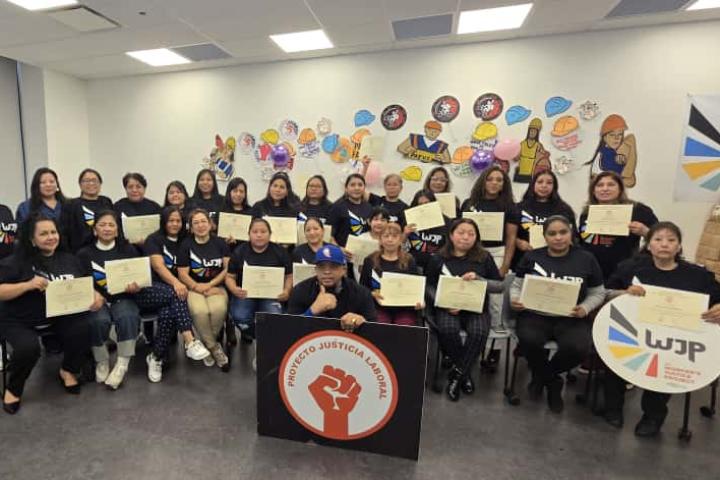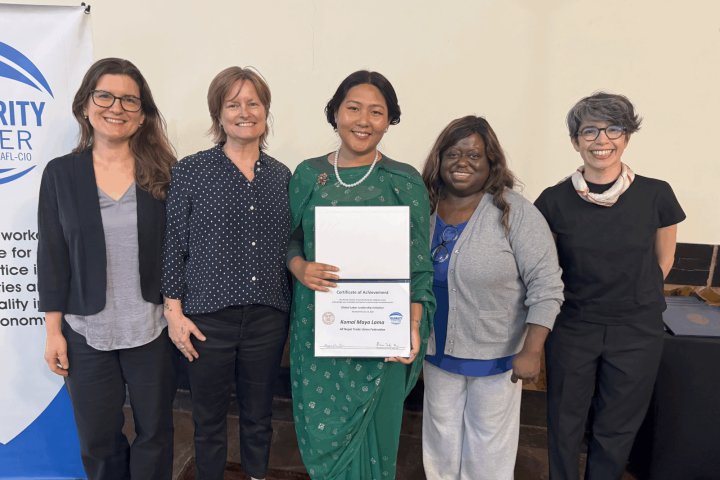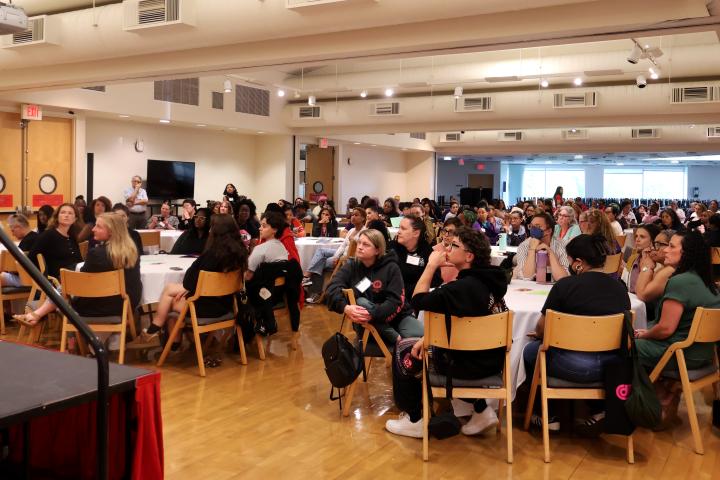
Constitutional Law Expert Discusses Free Speech in the Workplace
Whole Foods employees wearing Black Lives Matter masks after George Floyd's death. Tesla factory workers putting on union pins. Tensions among professors, administrators and students in academia around the Israel-Gaza conflicts.
These are just some recent examples of conflicts over freedom of expression that arise between workers and employers across the labor market, and they were also among the topics discussed Thursday in a forum held in Ives Hall.
In her talk, “The Constitution and the Workplace: Exploring How the First Amendment Impacts Workers,” Charlotte Garden addressed the crowd of nearly 70 students, faculty, and staff, presenting the case history that has shaped the First Amendment over the years, detailing how those rulings have been used to support or undermine worker voice and power.
“Congress shall make no law abridging the freedom of speech. That's barely even a sentence, right?” Garden asked to begin her talk. “No law. That feels really absolute. And yet … the First Amendment was built on a vast edifice. You can’t just look at the text. You also must look at the case law from approximately the last 100 years.”
The event, held in support of Cornell’s Freedom of Expression Theme Year, explored how the Constitution impacts the free speech rights of workers in both the private and public sectors.
“We were privileged to host Charlotte Garden, a foremost expert on First Amendment law as it relates to work,” said Gali Racabi, an assistant professor at ILR and an associated faculty member of Cornell Law School, who organized the event. “As the leading school dedicated to research on work, Cornell ILR is well-positioned to examine these hard issues, especially given this year's campus-wide focus on freedom of expression.”
The Julius E. Davis Professor of Law at the University of Minnesota, Garden specializes in labor, employment and constitutional law, with a special interest in the intersection of workers' rights and the Constitution.
In her talk, Garden provided an overview of relevant First Amendment doctrines and case law involving workers' protest rights (such as picketing), public sector employees' free speech, and claims of coerced speech by both employers and employees. This legal landscape helps ground debates over workers' rights to free expression and the obligation of employers and the state under the law.
Garden was introduced by Racabi, who presented the crowd with a series of hypothetical situations involving the First Amendment. Can an employer force their employees to lobby for a political candidate? Can a manager at a private company threaten a worker for trying to unionize? Should a professor at a public university be disciplined for celebrating the brutal treatment of migrants at a border crossing?
The event concluded with a question-and-answer session with both students and professors discussing both actual and hypothetical cases, as well as how Garden sees the law being applied in the future.


